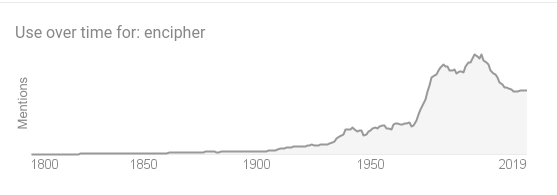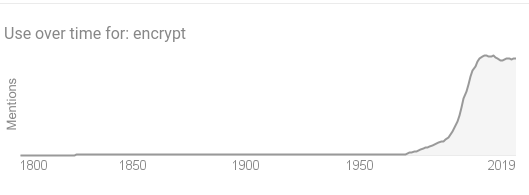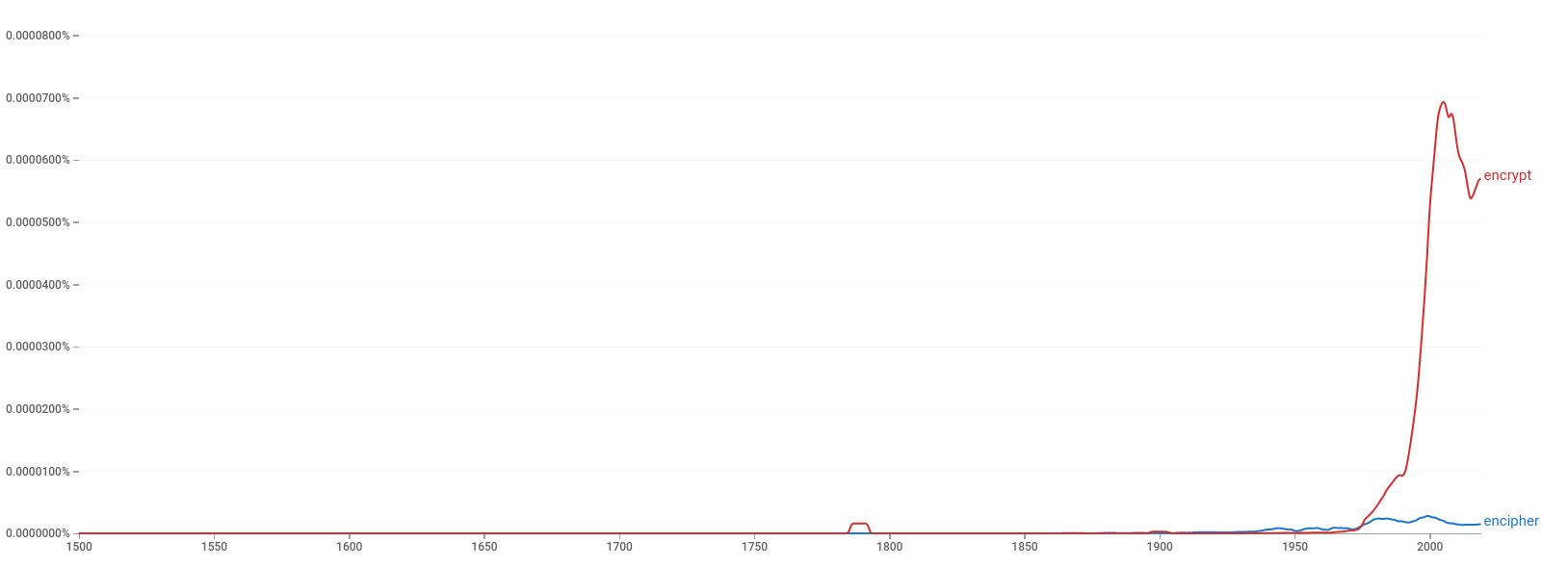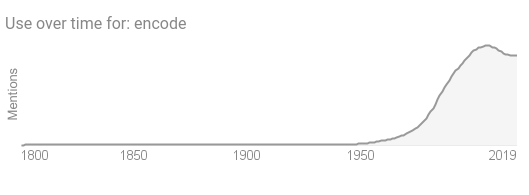I've seen encipher, encrypt, and encode for encryption. Encode is the worst since we have text encoding. The below definitions from Google dictionary that uses Oxford Languages.

encrypt: convert (information or data) into a cipher or code, especially to prevent unauthorized access.
Encrypt formed from English en + Greek kruptos is originally from the USA around 1950s.
Merriam Webster gives the date of the first usage of encrypt as 1944.

The above chart doesn't compare the actual values, Google's ngram can handle this

- Encode: convert into a coded form. ( Please don't use this for encryption)

Is there concrete evidence that in cryptography the standard words to use are "encipher" and "decipher" and that we do not use "encrypt" or "decrypt" because they are offensive words?
I've searched and I couldn't find, however, if you consider usage statistics, the encipher should be increasing over time instead of decreasing. The academicians visit various countries around the world and meeting in the conferences, and if it is an offensive word in some language we have already heard about that a lot from them. For example, take Eve, although it is an abbreviation for an eavesdropper, it is used for a bad actor can be considered an offensive usage since the religious Adam and Eve but still in use. I know some people don't use Eve anymore.
Personally, I read a lot of text using encipher, however, that usage is decreasing. And I've seen some texts that use encoding for encryption, I hope that will fade away.
And the Google fight Encipher vs Encrypt : Encipher 1 : Encrypt 200
Is there concrete evidence that in cryptography the standard words to use are "encipher" and "decipher" and that we do not use "encrypt" or "decrypt" because they are offensive words?
Actually, I have seen the reverse of this. There is a website named word safety ( Warning no https) show some -not exact- potential unwanted meaning for the word encipher in Russian, I would not list here.




